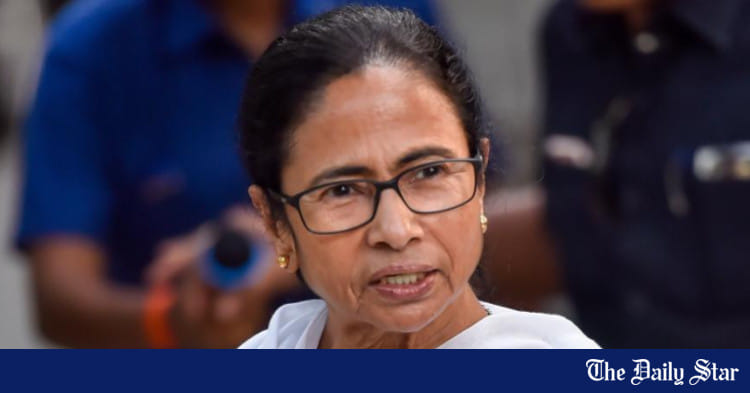Saif
Senior Member
- Joined
- Jan 24, 2024
- Messages
- 16,117
- Likes
- 8,060
- Nation

- Axis Group


Dhaka must talk push-in globally, Indians should also raise voice
INDIA’S Border Security Force pushing people into Bangladesh not only furthers Delhi’s unneighbourly conduct but also appears a deliberate policy decision. This blatantly contravenes international laws, bilateral agreements and established border management norms. Since May 7, Indian guards have...
 www.newagebd.net
www.newagebd.net
Dhaka must talk push-in globally, Indians should also raise voice
16 June, 2025, 00:00
INDIA’S Border Security Force pushing people into Bangladesh not only furthers Delhi’s unneighbourly conduct but also appears a deliberate policy decision. This blatantly contravenes international laws, bilateral agreements and established border management norms. Since May 7, Indian guards have pushed at least 1,511 individuals into Bangladesh. While the majority of them had for long resided in India, a significant number of them of Rohingyas, many registered with the UNHCR in India, and even some Indians. In the latest spate on June 14, Indian guards pushed at least 54 people through five border points. Twelve Rohingyas were forced through a border point in Moulvibazar. With this, the Indian border guards have pushed at least 147 Rohingyas, mostly women and children who include 50 registered with the UNHCR in India, into Bangladesh. Sixteen more, including four Indians, were pushed in through two border points in Panchagarh, 23 through a point in Thakurgaon and 3 through a point in Lalmonirhat, as the Border Guard Bangladesh and the police say.
Bangladesh authorities have formally urged the Indian counterparts to stop push-in operations. They have further assured India that they are prepared to take back any Bangladeshis living illegally in India but only through proper legal channels and due procedures. Despite this, India appears to have ignored the overtures, showing no willingness to co-operate and continues with the push-in. This unlawful action places additional strain on already tense bilateral relations, which have been under pressure because of persistent issues, notably the continued killings of Bangladeshis along the frontiers. While Indian authorities routinely profess a commitment to honouring international laws and bilateral agreements, including the use of no-lethal weapons on the border, Indian guards have routinely violated the principles, instead following a shoot-to-kill policy. As a result, the Bangladesh-India border has become one of the deadliest in the region. According to rights group Odhikar, the Indian guards killed more than 1,300 Bangladeshis in 2000–2023. Compounding the issue, Indian border guards have recently made attempts to erect fences at several points on the no man’s land, which is a violation of bilateral agreements. The provocative acts, which occur intermittently, further erode the foundation of neighbourly relations.
Given that the actions constitute serious violations of the international law and diplomatic norms, Dhaka must take up the issue with both international and regional forums. Right-thinking citizens in India should also speak out against such aggressive and unlawful practice and call on their government to abandon such antagonistic policies.
16 June, 2025, 00:00
INDIA’S Border Security Force pushing people into Bangladesh not only furthers Delhi’s unneighbourly conduct but also appears a deliberate policy decision. This blatantly contravenes international laws, bilateral agreements and established border management norms. Since May 7, Indian guards have pushed at least 1,511 individuals into Bangladesh. While the majority of them had for long resided in India, a significant number of them of Rohingyas, many registered with the UNHCR in India, and even some Indians. In the latest spate on June 14, Indian guards pushed at least 54 people through five border points. Twelve Rohingyas were forced through a border point in Moulvibazar. With this, the Indian border guards have pushed at least 147 Rohingyas, mostly women and children who include 50 registered with the UNHCR in India, into Bangladesh. Sixteen more, including four Indians, were pushed in through two border points in Panchagarh, 23 through a point in Thakurgaon and 3 through a point in Lalmonirhat, as the Border Guard Bangladesh and the police say.
Bangladesh authorities have formally urged the Indian counterparts to stop push-in operations. They have further assured India that they are prepared to take back any Bangladeshis living illegally in India but only through proper legal channels and due procedures. Despite this, India appears to have ignored the overtures, showing no willingness to co-operate and continues with the push-in. This unlawful action places additional strain on already tense bilateral relations, which have been under pressure because of persistent issues, notably the continued killings of Bangladeshis along the frontiers. While Indian authorities routinely profess a commitment to honouring international laws and bilateral agreements, including the use of no-lethal weapons on the border, Indian guards have routinely violated the principles, instead following a shoot-to-kill policy. As a result, the Bangladesh-India border has become one of the deadliest in the region. According to rights group Odhikar, the Indian guards killed more than 1,300 Bangladeshis in 2000–2023. Compounding the issue, Indian border guards have recently made attempts to erect fences at several points on the no man’s land, which is a violation of bilateral agreements. The provocative acts, which occur intermittently, further erode the foundation of neighbourly relations.
Given that the actions constitute serious violations of the international law and diplomatic norms, Dhaka must take up the issue with both international and regional forums. Right-thinking citizens in India should also speak out against such aggressive and unlawful practice and call on their government to abandon such antagonistic policies.





































